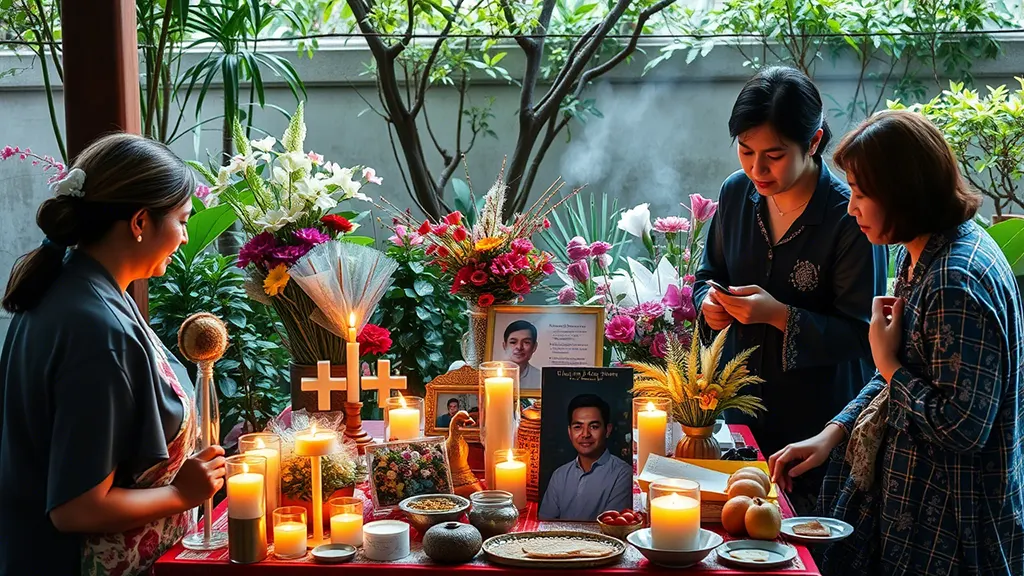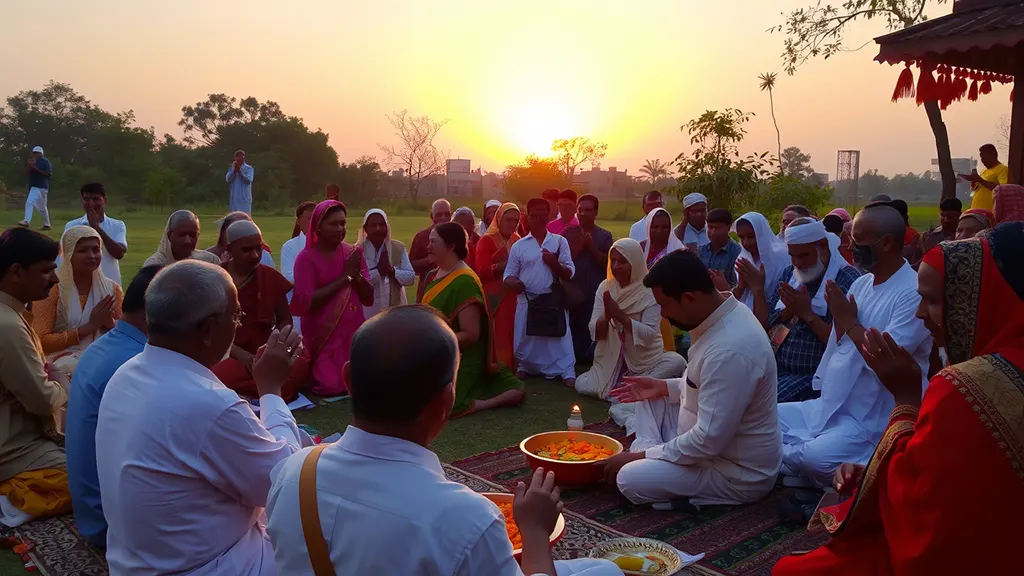Rituals honoring the deceased have long been an important part of spiritual life, meant to express reverence, filial piety, and a wish for peace for the souls of those who have passed. But this raises a question: How much is enough?

Rituals Across Cultures and Religions
Honoring the dead is not limited to East Asian cultures—it exists in many countries and religious traditions, each with its own way of performing such acts.
- Buddhism: In countries like Vietnam, Thailand, and Myanmar, ancestor worship and offerings to the deceased are common. Buddhists often offer flowers, candles, incense, and simple food in ceremonies to help the souls move beyond suffering. The Buddha taught: “Even a small offering brings great merit if done with a pure heart.” (Pāli Canon). Offering is not about material things—it is a gift from a sincere heart.
- Hinduism: In Indian families, rituals for ancestors are regularly performed at home, involving food, fruit, and flowers on special days. The purpose is to purify the soul and maintain an eternal connection with ancestors.

- Catholicism and Judaism: In Western faiths, rituals for the dead often involve prayer and memorial services. Catholics hold Masses and prayers for the souls of the dead, while Jews observe Yahrzeit, the anniversary of a person’s death, with candle lighting and remembrance prayers.
- Other Western Cultures: While regular ancestor rituals are not central in most Western cultures, memorial days like Halloween or Memorial Day in the U.S. serve as moments for people to honor and remember their dead in their own way.
How Much Is Enough?
There is no universal measure for how much is “enough” when honoring the dead. The truth is, it is enough when the one performing the ritual feels it is enough—when the preparations are made with sincerity and reverence.
An easy way to understand this is to imagine inviting a guest to dinner. Suppose you have carefully prepared the table and the meal, not out of obligation, but from genuine care and hospitality. Your guest will feel your sincerity through every detail, and they will feel welcomed and happy—not pressured or burdened.
Psychological studies show that when we act with genuine intention and sincerity, our emotions are reflected in our behavior. When we feel content and at peace with what we are doing, we don’t just experience satisfaction—we may also feel true happiness.
Likewise, whether the ritual is simple or grand, it is only meaningful if the person performing it is truly at ease, free from stress or pressure. Lavish offerings without inner peace or sincerity won’t bring fulfillment. Only when the heart is unburdened and voluntary can the ritual bring real meaning. The Buddha also taught: “Offerings made with a pure mind bring benefit to both giver and receiver.” (Dhammapada). This is echoed in findings from positive psychology: acts done with intention and authenticity bring deeper satisfaction than those done from obligation or unclear motives.
Rituals for the deceased are not about the amount of material offerings or how elaborate they are, but rather about the state of mind of the one making them.
How much is enough? – It is enough when your heart is at peace, when you act with genuine respect and readiness.
That is what makes a ritual complete and meaningful.
In the Khuddaka Nikaya (Minor Collection), the Buddha taught: “Each person may offer according to their means, as long as the heart is sincere.”
